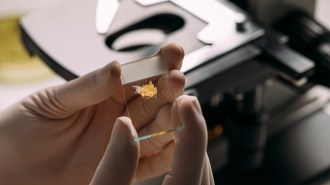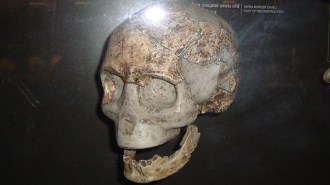Depression leaves lasting mark on DNA
Stress can damage cells at the molecular level, study finds
Depression changes people down to their DNA, a new study suggests.
People with depression have more mitochondrial DNA and shorter telomeres than nondepressed people do, an international team of researchers reports online April 23 in Current Biology.
Mitochondria are organelles that produce energy for cells. Mitochondria seem to become inefficient under stress, the team found, so more mitochondria may be needed to produce enough energy. Telomeres are the DNA endcaps on chromosomes that prevent the genetic material from unraveling. Short telomeres are associated with shorter life spans. The altered DNA may reflect metabolic changes associated with depression, the researchers say.
Experiments with mice showed that these DNA changes are brought on by stress or by stress hormones. Four weeks after scientists stopped stressing the mice, their mitochondrial and telomere DNA had returned to normal. Those results indicate that the molecular changes are reversible.
Researchers also studied DNA from more than 11,000 people to learn whether past stress was responsible for the molecular changes seen in people with depression. Depression was associated with the DNA changes, but having a stressful life was not. For instance, people who had experienced childhood sexual abuse but were not depressed did not have statistically meaningful changes to their DNA compared with people who had no history of abuse. The findings suggest that stress can change DNA but many people can bounce back. Depressed people may have a harder time recovering from the molecular damage.






